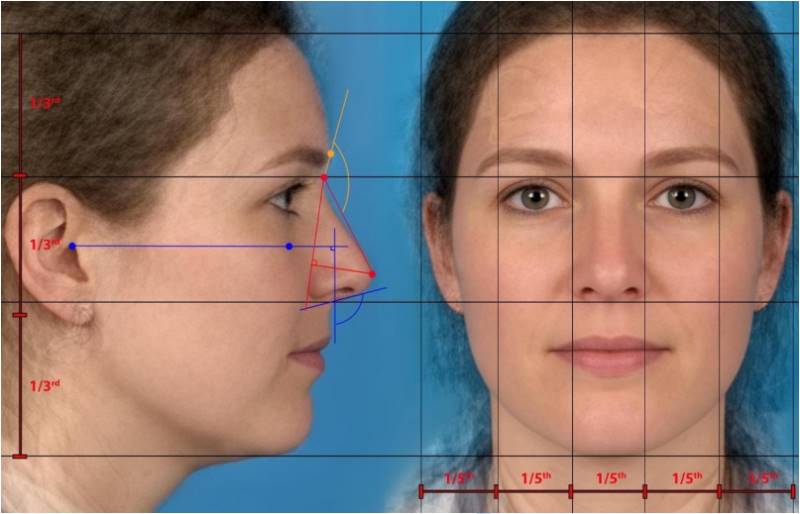Summary
A smaller nose width is often considered more attractive among females. A study suggests that the mean nose width was 30.5 mm in young women, whereas, another study suggests the mean value to be 31.1 mm. Research at the Catholic University of Roma, Italy found that a nose width smaller than ¼ of the facial width contributes to the perception of beauty. Another study supported this, with 64.8% of respondents preferring reduced nose proportions in women. Additionally, a study reported that the human nose is sexually diamorphic, with males tending to have larger noses than females, making evolutionary preferences for smaller female noses understandable. Furthermore, a study found that a youthful face often features a small nose, large eyes, and full lips, which can contribute to overall attractiveness. A more recent study investigated the neoclassical cannon theory, which proposes that the ideal female nose width is about one-fifth of the facial width. The findings showed deviations from the theory, but generally, noses closer to the average composite were deemed more attractive.
Research
A research study by Patil et al. (2011) aimed to delineate the anthropometric measurements of the noses of young women of an
Indian population and to compare them with the published
ideals and average measurements for white women. As per this study, the nose width for Indian female was 35.6 mm whereas, for North American Female, it was 31.4 mm. However, the mean nose width was 30.5 mm in young women.
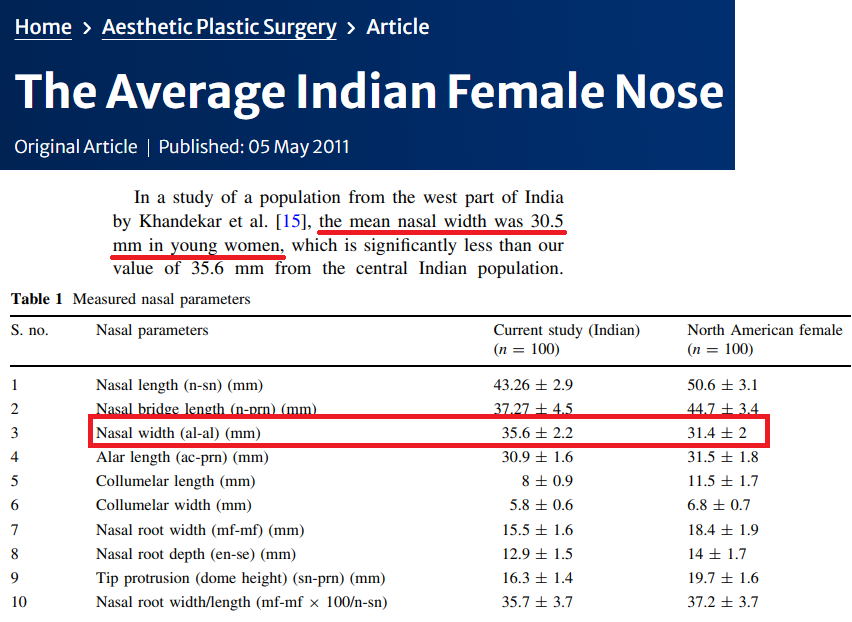
Another study by Farkas et al. (1986) discussed the nasal measurements in 34 women with above-average faces. In this study, the mean nose width for female is 31.1 mm. It is to be noted here that this mean value is for above average face, hence, implying that smaller nose is better.
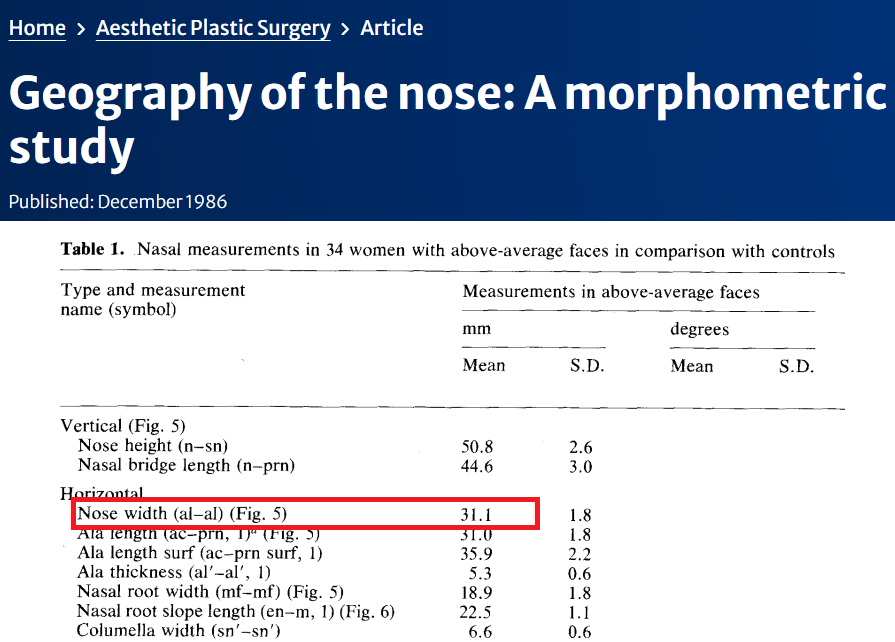
According to a study by Tersello et al. (2010) at the Catholic University of Roma, Italy, a “nose width smaller than ¼ of facial width” creates ‘beauty’ within a face. This study was based on 50 Italian models selected for an important beauty contest.
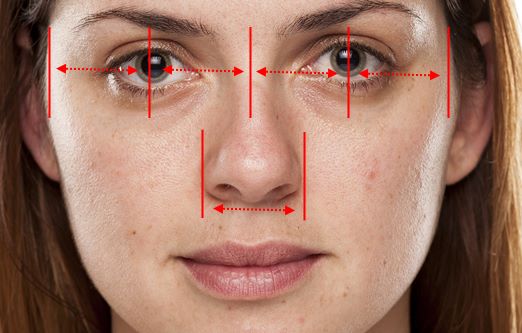
Another study (Przylipiak et al, 2018) corroborated these findings, “64.8% of respondents prefer […] reduced nose proportions in women”.

Mikalsen et al (2014) reported that the human nose is sexually diamorphic (with males tending to display larger noses than females) so evolutionary preferences for small female noses make sense.
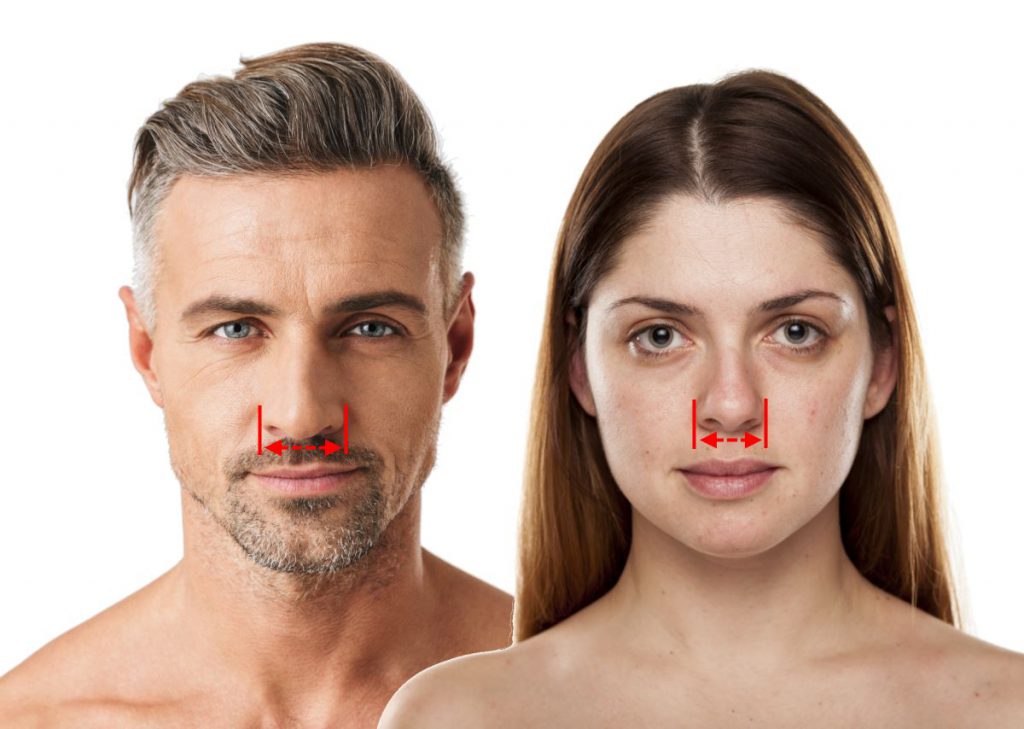
More historically, a paper published by Doug Jones (and colleagues, 1995) reported that a youthful face was one that combined a “high ratio of neurocranial to lower-facial features with a small nose, ears, and full lips”.
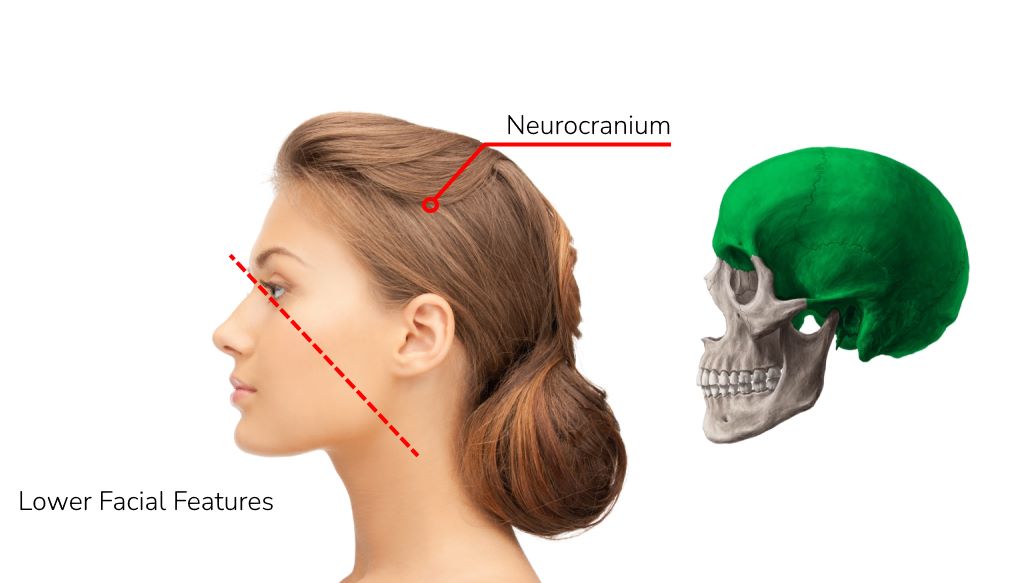
Additionally, they found that “a face with unusually large eyes, a small nose, and full lips in relation to face height will have a lower predicted age”.
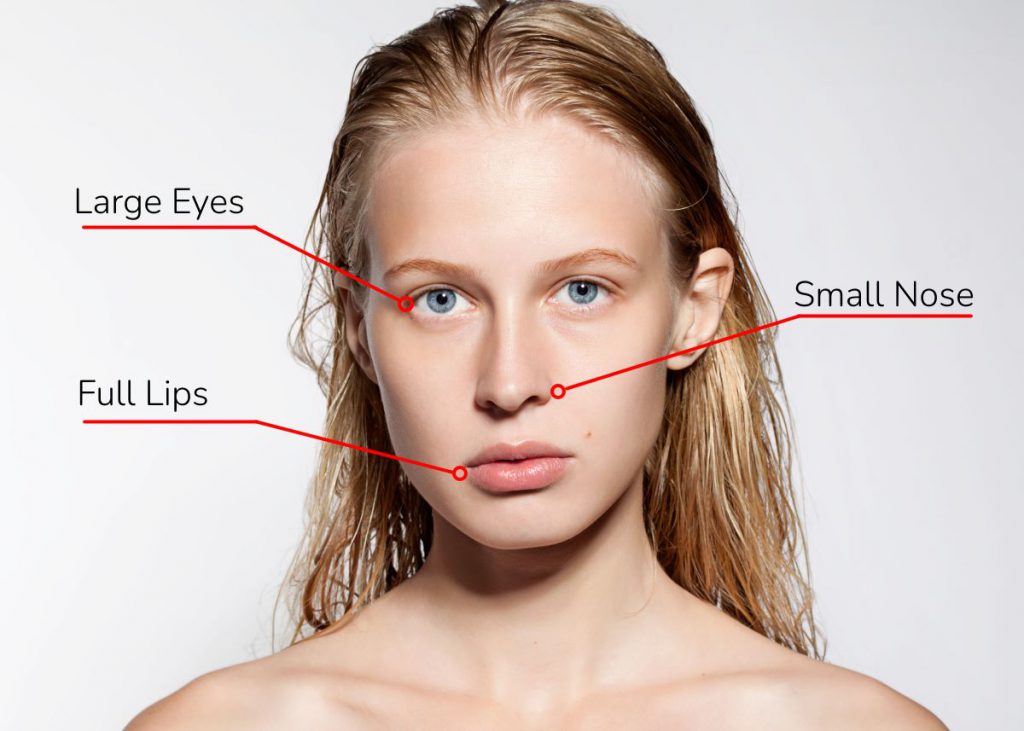
Together, these studies shed light on the potential benefits of a smaller nose, and how this can help contribute to overall facial attractiveness.

Van Zijl et al (2020) from the Department of Otorhinolaryngology at the Erasmus Medical Center, set up a study which helped investigate a neoclassical cannon theory: whether the ideal female nose width measured approximately one-fifth of the width of an individual’s full face (when measured at the alar base)?.
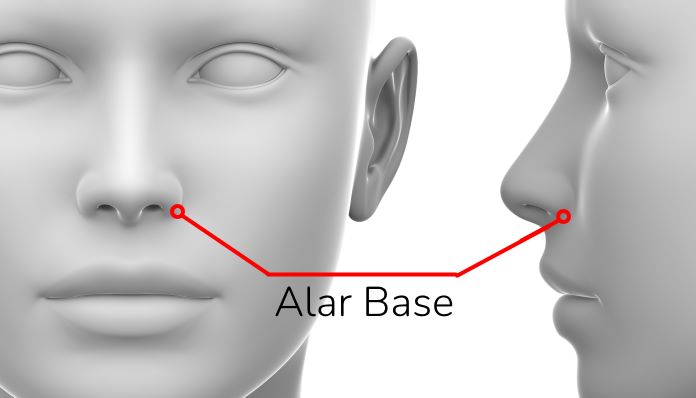
His research findings showed some “deviations”, namely that the attractive nose composite they produced had an “alar base that is slightly wider than the inner canthal distance” and that average nose shapes “are perceived as attractive” but not “the aesthetic ideal”.
However in general “the more a nose deviated away from the average composite […] the lower the attractiveness score of that nose was”.
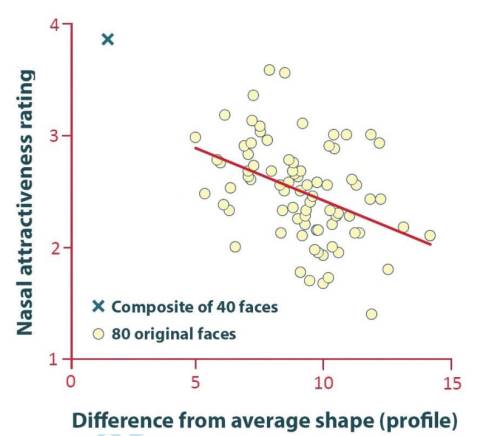
Reference
Patil, S. B., Kale, S. M., Jaiswal, S., Khare, N., & Math, M. (2011). The average Indian female nose. Aesthetic plastic surgery, 35, 1036-1042. https://doi.org/10.1007/s00266-011-9729-5
Farkas, L. G., Kolar, J. C., & Munro, I. R. (1986). Geography of the nose: a morphometric study. Aesthetic plastic surgery, 10, 191-223. https://doi.org/10.1007/BF01575292
Torsello, F., Mirigliani, L., D’Alessio, R., Deli, R., 2010. Do the neoclassical canons still describe the beauty of faces? An anthropometric study on 50 Caucasian models. Progress in Orthodontics. 11, 1. 13-19. https://doi.org/10.1016/j.pio.2010.04.003
Mikalsen, Å. K. R., Folstad, I., Yoccoz, N. G., Laeng, B., 2014. The spectacular human nose: an amplifier of individual quality? PeerJ . 2. e357. https://doi.org/10.7717/peerj.357
Przylipiak, M, Przylipiak, J, Terlikowski, R, Lubowicka, E, Chrostek, L, Przylipiak, A. Impact of face proportions on face attractiveness. J Cosmet Dermatol. 2018; 17: 954– 959. https://doi.org/10.1111/jocd.12783
Jones, D., Brace, C. L., Jankowiak, W., Laland, K. N., Musselman, L. E., Langlois, J. H., Roggman, L. A., Perusse, D., Schweder, B., Symons, D., 1995. Sexual Selection, Physical Attractiveness, and Facial Neoteny. Current Anthropology. 36, 5. 723 – 748. 10.1086/204427
van Zijl, F. V. W. J., Perrett, D. I., Lohuis, P. J. F. M., Touw, C. E., Xiao, D., Datema F. R., 2020. The Value of Averageness in Aesthetic Rhinoplasty: Humans Like Average Noses. Aesthetic Surgery Journal. 19, 40. 12, 1280-1287. doi: 10.1093/asj/sjaa010 https://pubmed.ncbi.nlm.nih.gov/31960890/
